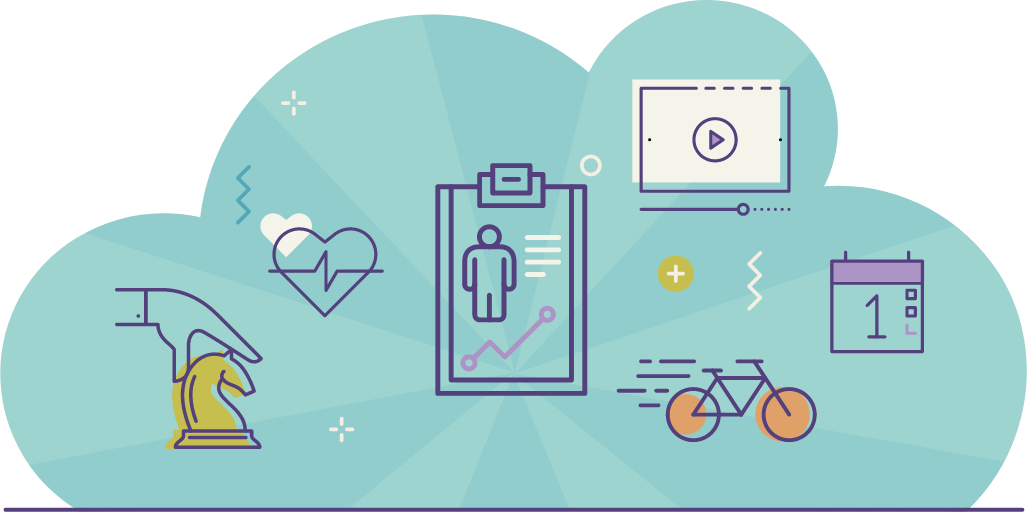Angela Steel, CEO of SuperWellness interviews Louise Gaskell on the impact of shift work on employees in the airline industry, and the challenges faced by employers and employees in this sector. SuperWellness provides nutrition centred wellbeing for employees.
Q1: Louise, you’ve worked for a major airline for many years, previously flying both long haul and short haul and now part time. For the past 5 years you have also worked as a registered nutritionist. This must have given you a truly unique perspective into the main health & wellbeing challenges that face those in the airline industry. What would you say are the main ones?
There are many health challenges facing airline workers, or anyone who works shifts. Working long hours, often overnight and over different time zones in a pressurised environment can have potential implications for the health. Being extremely fatigued is probably the most obvious issue. Everyone can relate to the experience of having had a bad night’s sleep, so spare a thought for crew and shift workers when this is for several nights a week!
A recent study in Korea suggested that night shift work was related to an increased risk of mental health problems in production workers, and the sleep disturbance related with shift work was a central mechanism for this relationship. (2)
Being away from home and family constantly can be a wrench, and being away when you need to be at home is the reality. For some this life can be quite isolating and lonely, and when you add tiredness or jet lag to this it can be a damaging combination. This can compound or in some cases lead to staff developing mental health problems. Adopting various coping methods like alcohol, sleeping pills or antidepressants can further exacerbate the problem.
According to the NHS, shift workers are ‘more likely’ to report poor health, and have higher rates of obesity, and increased evidence of chronic diseases such as diabetes in shift workers, than the general population (The Health Survey for England 2013).
Q2: How have you overcome these challenges?
In my personal experience, I think that if you are a night shift worker that it is really important to have good health strategies to help minimise the impact of these challenges. Taking extra care of your general health and wellbeing pays dividends in the struggle against fatigue. By focusing on nutrition, exercise and relaxation you can help to improve your resilience.
Constant disruption of the circadian rhythm and sleep deprivation can potentially affect hormone balance, the immune system, digestion and the liver. Evidence suggests that shift workers are more prone to metabolic disorders such as diabetes and obesity(1).
Q3. How do you deal with irregular sleep patterns?
Many airline crew or shift workers will often complain that they feel almost permanently tired, and tiredness is inevitable if you are awake and working when you should be sleeping for several nights a week. Unfortunately it isn’t always as simple as just getting some sleep to feel better either, because often when you want to sleep it may be the wrong time of day to do so. Everyone is different in how they deal with irregular sleep patterns, and this also depends on the circumstances of your home life and what is practical for that. What I tried to do is focus on recovery and resilience rather than cheat the clock.
Q4: With the knowledge you gained from studying nutrition, what were some of the habits you’ve changed, to minimise the impact of these risks?
I gave up caffeine!
For many, the thought of giving up caffeine is unthinkable, but what helped me when I was working long haul was to surrender the reliance on caffeine ‘to keep going’ on night flights as many do. I did a few experiments where I gave up caffeine, and I found that I didn’t feel any more tired than normal.
Also when I did try to sleep I noticed I fell asleep quicker, rather than still feeling ‘tired but wired’ from caffeine. I also found that because I was replacing the caffeine with water, this helped to counteract dehydration and the dryness associated with being on an aircraft. (I don’t recommend that anyone gives up caffeine cold turkey whilst at work, but rather eliminates caffeine a few days before, as withdrawals are likely)
I focused on my food plan both at work and at home
Whilst bringing your own food might be desirable, it may not always be possible, due to the liquids restrictions in security or the fact that you can’t take food into certain countries. Therefore you are often reliant on airport or airline food, which isn’t always what you want or need.
I boost my nutrient intake at home and between flights so that if I am not able to eat as well as I usually do at work, then I know that what I have put in place previously will help me. I recommend at least 7 portions of fruit and veg per day (max 3 pieces of fruit), but if this is hard juicing them can be a good idea. It sounds obvious but not having processed food and having plenty of fresh fruit and veg every day does make quite a difference. If at work and on the night shift, it is best to avoid rich and fatty meals as the body has to work very hard to digest them.
I ate lightly or fasted on flights
The immune system can become compromised if you are flying frequently so washing hands frequently to avoid picking up extra germs is necessary. At this time the liver is detoxifying and the body is trying to repair and recuperate, so it’s not a great time to be eating or drinking. I tend to fast on night flights or just have a little soup or salad if I am really struggling. When I arrived home, if I was hungry I would have a light breakfast before going to bed after a night sector.
Exposure to daylight
I would always try to get outside (without sunglasses) as much as possible before and after the flight, as the exposure helped me to get used to the local time and re-set the body clock.
Q5: What would be your recommendations to employers in the industry generally, in terms of their wellbeing strategy?
Compared to employees working traditional day shifts, it is especially important for employers to provide support to those staff who work shifts, because of the potential increased risks to health.
1.Providing coaching around nutrition, hydration and exercise should ideally be incorporated into any wellbeing initiatives. Providing plenty of good quality healthy options in the canteen and adequate labelling, will help staff to make good decisions.
2. Education should include strategies on sleep and relaxation, and coaching on how to make the most of their rest periods.
3. Ensuring staff rest areas are actually conducive to rest and provide good facilities.
4. Ensuring that there are opportunities for employees to partake in physical activity if they wish, such as providing hotels with gym facilities. Some airlines also provide a counselling service for staff, and I think this is a positive move.
Q6: Finally for those frequent flyers among us, what are your top tips for feeling refreshed on arrival and avoiding ‘business travel bulge’.
I think many people tend to over eat and drink on flights due to boredom, but actually you never get off feeling great if you do this. You wouldn’t have a heavy dinner and then immediately go to sleep at home, so why do it on board!
Whilst it may be different if you are going on holiday, for business travel I would suggest
- Ditching bread (bloats most people), minimising caffeine, alcohol and sugar and eating as light as you can.
- Get up and move around if you get the opportunity.
- There is a lot of new research suggesting fasting as a way of minimising jet lag, and whilst it is not for everyone I found that doing this made a difference to how I felt.
References:
The Circadian Clock and Human Health, Current Biology (2016) Till Roenneberg Martha Merrow (2) The relationship between shift work and mental health among electronics workers in South Korea: A cross-sectional study Mo-Yeol Kang, Ho-Jang Kwon,Kyung-Hwa Choi,Chung-Won Kang,Hyunjoo Kim (2016). The Health Survey for England (2013).





















